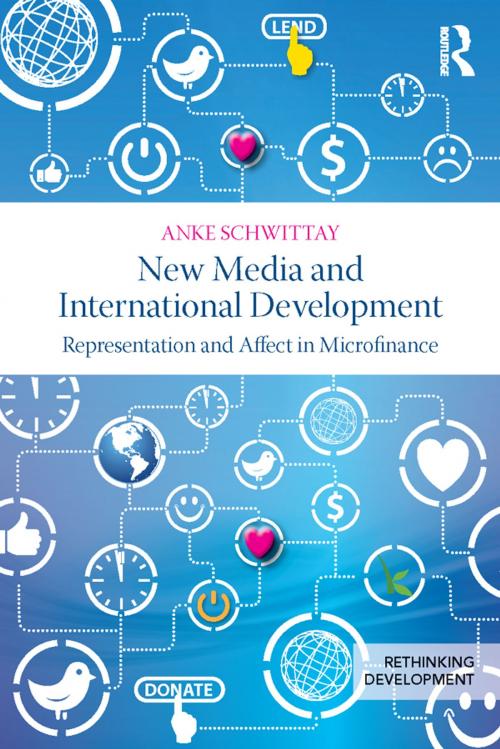New Media and International Development
Representation and affect in microfinance
Business & Finance, Economics, Sustainable Development, Economic Development| Author: | Anke Schwittay | ISBN: | 9781135076160 |
| Publisher: | Taylor and Francis | Publication: | September 19, 2014 |
| Imprint: | Routledge | Language: | English |
| Author: | Anke Schwittay |
| ISBN: | 9781135076160 |
| Publisher: | Taylor and Francis |
| Publication: | September 19, 2014 |
| Imprint: | Routledge |
| Language: | English |
New Media and International Development is the first in-depth examination of microfinance’s enduring popularity with Northern publics. Through a case study of Kiva.org, the world’s first person-to-person microlending website, and other microfinance organizations, the book argues that international development efforts have an affective dimension. This is fostered through narrative and visual representations, through the performance of development rituals and through bonds of fellowship between Northern donors and Southern recipients. These practices constitute people in the global North as everyday humanitarians and mobilize their affective investments, which are financial, social and emotional investments in distant others to alleviate their poverty. This book draws on ethnographic material from the US, India and Indonesia and the anthropological and development studies literature on humanitarianism, affect and the public faces of development. It opens up novel avenues of research into the formation of new development subjects in the global North.
This book will appeal to researchers and students of international development, anthropology, media studies and related fields, as well as practitioners and professionals in the field of international development
New Media and International Development is the first in-depth examination of microfinance’s enduring popularity with Northern publics. Through a case study of Kiva.org, the world’s first person-to-person microlending website, and other microfinance organizations, the book argues that international development efforts have an affective dimension. This is fostered through narrative and visual representations, through the performance of development rituals and through bonds of fellowship between Northern donors and Southern recipients. These practices constitute people in the global North as everyday humanitarians and mobilize their affective investments, which are financial, social and emotional investments in distant others to alleviate their poverty. This book draws on ethnographic material from the US, India and Indonesia and the anthropological and development studies literature on humanitarianism, affect and the public faces of development. It opens up novel avenues of research into the formation of new development subjects in the global North.
This book will appeal to researchers and students of international development, anthropology, media studies and related fields, as well as practitioners and professionals in the field of international development















